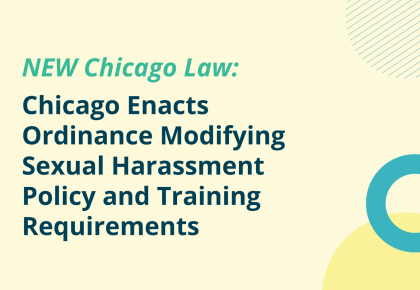Workplace Retaliation Needs Greater Attention Given its Impact on Workplace Culture
When Anonymous Reporting is a Necessary Course of Action, the Risk of Retaliation is High.
Nearly every employment lawsuit contains an allegation of workplace retaliation, where an employee alleges they have suffered adverse employment action as a result of “engaging in legally protected activity.” Practically, retaliation commonly occurs when an employee makes a complaint of illegal behavior occurring at work and suffers demotion, relocation, or termination in the wake of speaking up. In a recent Washington Post article, workplace advice columnist Karla L. Miller opined on the frequency of workplace retaliation, and quoted an employment attorney as stating “nine times out of ten, your days at your employer are numbered. Best to use [the retaliation] as leverage to get a good severance, then find a better employer.” Miller notes the result of each of the cases she profiled resulted in the employee leaving and finding another job, but what if packing up and leaving isn’t always the right solution for everyone?
Retaliation is easy to see, yet can be difficult to prove
After representing management in employment matters for the better part of 20 years, situations occurring at work never cease to surprise or amaze. Yet certain themes are common among charges and complaints that are lodged with employers (and ultimately filed in court or with governmental agencies). Retaliation is a claim that is easy to make, yet difficult to prove on its own. Indeed, many employees perceive the adverse actions they allege as resulting from their complaint (or participation in other illegal activity) when there are mitigating factors lurking in their employment record with that employer that make it difficult to connect the adverse actions directly to their activities. As Miller notes in her article, such mitigating factors can be fabricated by an employer to make it appear that there is a performance problem when in reality the employer just wants the complaining party gone (or to stop making such complaints).
There are no heroes at work (at least in the eyes of employers)
One key factor that has led to the persistence of adverse actions resulting from employee complaints is the negative perception managers project on those who speak up about negative (or illegal) behavior taking place at work. While employers may espouse an “open door” policy, the body (and verbal) language of managers tasked with receiving complaints often goes beyond inquisitive and into downright hostile (and even accusatory) territory. The propensity to be “too busy” to actively listen to, and ultimately resolve, complaints is a cultural deficiency that leads to increased employee turnover and ultimately, a greater need to pay the severances, settlements and judgments mentioned in the Washington Post article.
Complaints should be embraced by managers, and listening skills should be emphasized
The cultural concept of “Speak Up!” involves the idea that employers welcome discourse on anything going on within their workplace. Sometimes this elicits positive feedback, other times there is a situation to be addressed. The other side of the Speak Up! coin is the management-skills concept of “Listen Up!” When managers are educated to empathize with employee claims and take a true interest in not just hearing concerns, but also listening to them (and responding promptly), the workplace loses an aura of stress and discomfort.
In a recent conversation with a Mitratech manager, I mentioned their skill in taking in information without sounding patronizing, condescending, or argumentative. While inherent skill in this area is rare, it does exist, and fortunately can be learned. Those organizations that have managers who are skilled in listening to concerns (and actively encourage employees to discuss them) are undoubtedly seeing greater productivity, a reduction in turnover, and of course a reduction in settlements and judgments paid out.
Syntrio’s suite of courses can help your managers avoid retaliation
Understanding the danger of retaliation as a form of discrimination, Syntrio developed a suite of courses aimed at not only educating employees and managers on what retaliation is (and how to avoid it), but also on the value of learning the concepts of speak up and listen up. Syntrio welcomes the opportunity to partner with your organization to add retaliation, speak up and listen up education to your learning platform, as we believe it pairs well with critical (and often mandatory) education topics such as harassment, discrimination, workplace violence, and other key employment issues. Contact a member of our staff today to see how Syntrio and Mitratech can improve your managers’ skills, and in turn, improve your workplace culture.



